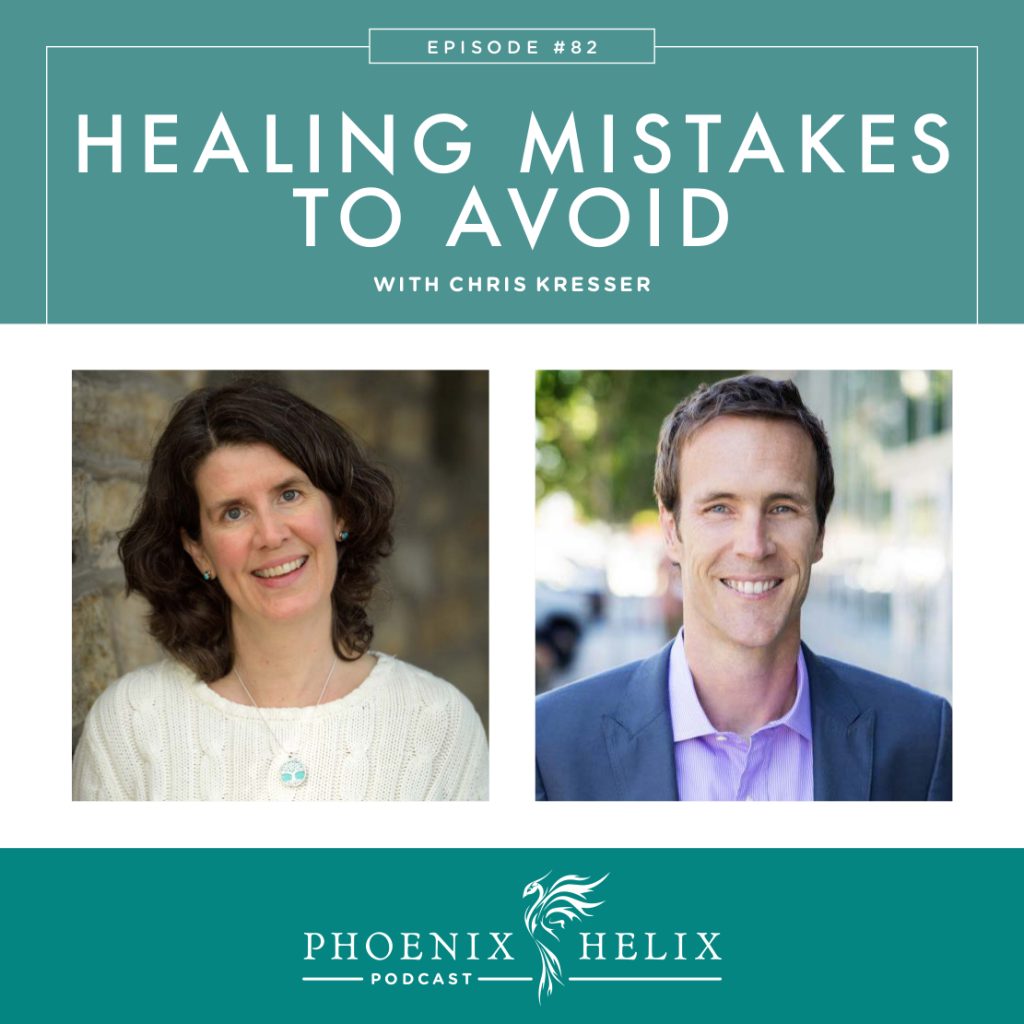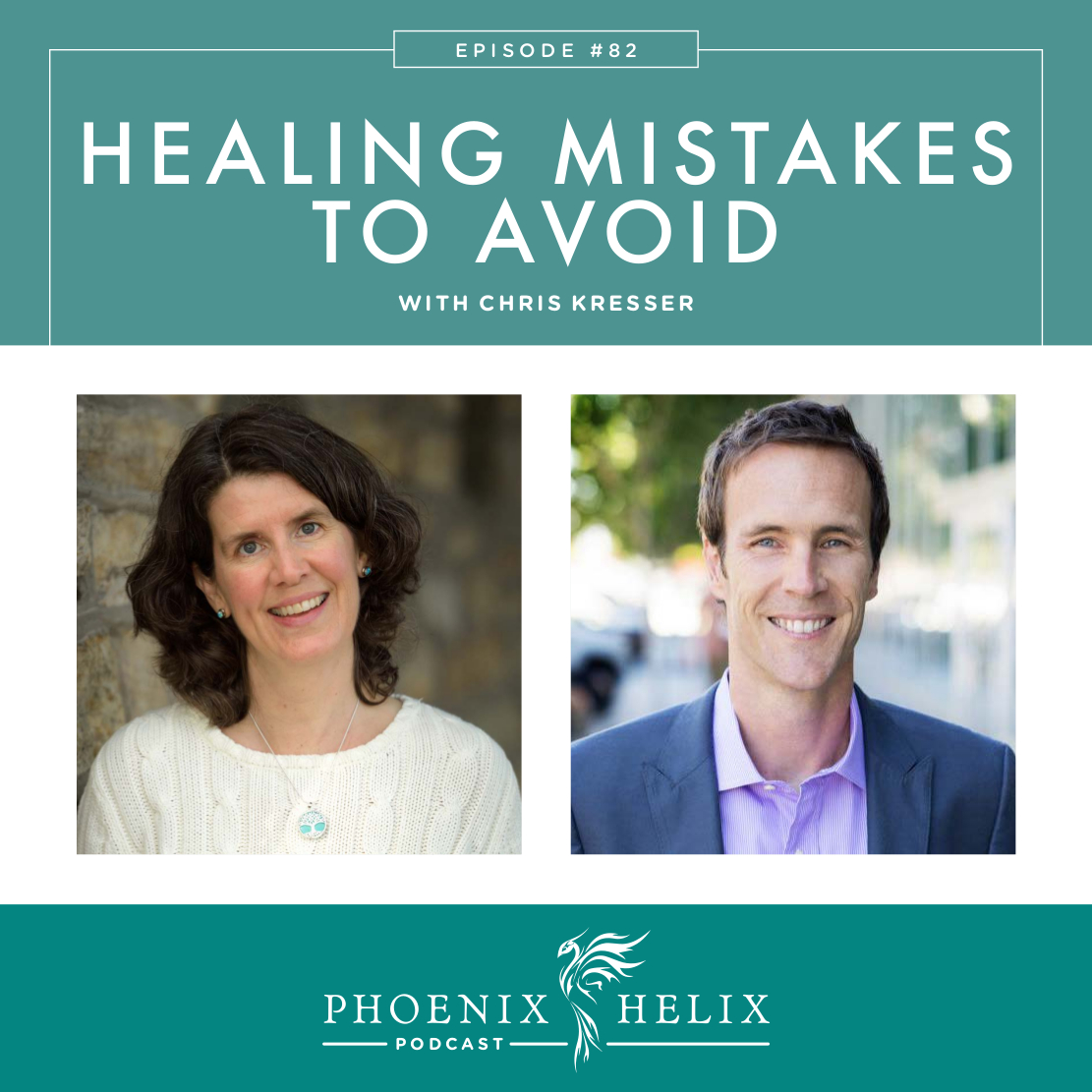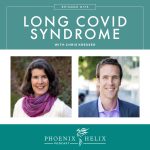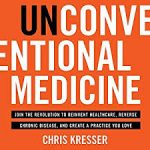
Advice from One of the Top Functional Medicine Practitioners in the Paleo Community
Mistakes: We’re human, and we all make them; it’s one of the ways we learn. But sometimes – if we’re lucky – we can learn from each other’s mistakes without having to make them ourselves. That’s our goal with this podcast. My guest, Chris Kresser, is one of the most respected voices in the paleo community. He is so passionate about functional medicine that in addition to his private practice in California, he also founded the Kresser Institute, the first and only program to teach functional medicine from an ancestral and evolutionary perspective. Chris is also the author of the New York Times best seller, Your Personal Paleo Code. and a new book coming out in November: Unconventional Medicine. His website is one of the top 25 natural health sites in the world, and he’s also the voice behind the popular podcast: Revolution Health Radio. Today, we’ll be talking about some of the most common autoimmune healing mistakes patients and practitioners make.
Listen to the Show
- Subscribe to my podcast through your favorite podcast app: iTunes, Stitcher, Google, TuneIn, Spotify, Amazon, etc.
- You can also listen to the episode right here through the player below, and if you subscribe to my newsletter you’ll get notified of future episodes.
Podcast: Play in new window | Download
Show Notes
- Intro (0:00)
- Thank You to Our Podcast Sponsor – Paleo on the Go (1:59)
- A frozen meal delivery service, they have a large menu of items for the paleo autoimmune protocol (AIP).
- Use the code PHOENIX for 10% off your first order.
- Eileen’s Updates (3:29)
- On the weeks between podcasts, I write articles on my blog. The latest one is called 15 Hidden Sources of Gluten. If you don’t want to miss out, subscribe to my weekly newsletter.
- Meet Chris (4:11)
- Chris Kresser is one of the most respected voices in the paleo community. He’s the voice behind the podcast, Revolution Health Radio. He works with patients at the California Center for Functional Medicine and teaches practitioners through The Kresser Institute. He’s also the NYT bestselling author of Your Personal Paleo Code and his new book is called Unconventional Medicine.
- It was his own health struggles that led him to a career in functional medicine. In his late 20’s, Chris had chronic health issues that conventional doctors weren’t able to address. At his worst, he became completely incapacitated, was unable to work, and spent most of the day curled up in pain on the floor.
- Chris lives a healthy life now, having the energy and capacity to do the work he loves, spend time with his family, travel, and enjoy his hobbies. He does experience occasional symptoms related to his decade-long illness, and also new stresses from lyme and mold exposure in recent years. The difference is that his symptoms are manageable now, and they don’t interfere with his living a full life.
- The keys to turning his health around included the ancestral diet and lifestyle, functional medicine, meditation (which he has practiced for 25 years), a focus on pleasure, play, and social connection, and not becoming obsessed with a limited definition of health.
- Defining Health & Suffering (7:47)
- Defining health as being 100% symptom-free sets many people up for a life of suffering, because that’s not always achievable for everyone, nor is it a permanent state anyone can maintain. Life is dynamic, and when you have chronic health issues, you can become obsessed with this narrow definition and miss out on life.
- Instead, Chris recommends people broaden their definition of health to living a full and rich life, one that includes joy and pleasure. It doesn’t mean we don’t take the steps necessary to improve our symptoms, but true health embraces much more than that.
- Definition of suffering: Resisting reality as it presents itself in each moment. Listen to podcast episode 59, for more on this philosophy and a technique to help make this mind-body shift.
- Top Paleo Diet Mistakes (10:04)
- #1: Not Personalizing Your Diet: While it’s wise to start with a template like the paleo autoimmune protocol, the elimination phase isn’t meant to last forever. Reintroductions are an important step. In addition, people can vary in starch tolerance, and optimal macronutrient ratios. The dietary needs of someone in an autoimmune flare vs. remission will differ as well, with food tolerance usually increasing during remission. It’s a journey of self-experimentation, but no one figures it out all at once. Start with a template for the first few months, and then conduct self-experiments to personalize your diet for you. Chris’s first book is a guide to this process: Your Personal Paleo Code (retitled in paperback as The Paleo Cure). Eileen’s book is A Simple Guide to the Paleo Autoimmune Protocol. If the process seems overwhelming to navigate on your own, seek help.
- #2: The Accidental Low-Carb Diet: When someone removes grains and processed foods from their diet and doesn’t replace them with paleo-friendly starches. While some people benefit from ketogenic or low-carb approach, others need ample amounts of carbohydrate to thrive.
- Chris’s own dietary needs have changed over time as well. He’s currently experimenting with fasting and cyclical ketosis.
- The Most Common Lifestyle Mistake (23:14)
- Focusing on Food and Supplements Only. The truth is that sleep, stress management, pleasure, play, and social connection all have a powerful impact on autoimmune health. They are at least as important as diet. In fact, most immune cells have receptors for endorphins (pleasure hormones), so these activities help regulate the immune system. One study showed that lack of social connection poses the same health risks as smoking 15 cigarettes per day.
- Chris literally writes patient prescriptions for play and pleasure. See his book, Unconventional Medicine, for a case study of Charlotte, who hit a healing plateau in spite of a very clean diet and functional medicine testing and treatment. It wasn’t until she started focusing of play and pleasure that her health began to improve again.
- Resources:
- Top Mistake Patients Make When Choosing a Healthcare Practitioner (33:27)
- Just as our spouses can’t meet all of our relationship needs, one healthcare practitioner can’t meet all of our healthcare needs. That’s why a team approach is so essential, which might include physician’s assistants, nurse practitioners, nutritionists, health coaches, and other allied health providers, working together with the primary doctor.
- One problem is the lack of well-trained practitioners who work in a collaborative practice model. Chris is trying to change this through The Kresser Institute and his new book, Unconventional Medicine.
- Resources:
- Top Mistakes Conventional Doctors Make When Treating People with Autoimmune Disease (36:41)
- #1: Suppressing symptoms with drugs without addressing the underlying root causes.
- #2: Telling patients to eat better, exercise more, and manage their stress, without any education or support to help the patient make and maintain those changes.
- The average appointment length is 8-12 minutes, which simply doesn’t allow time for detailed, personalized care.
- Insurance pays for the drugs, but doesn’t pay for guidance on a healthy diet and lifestyle. The first medical study was just published, showing that the AIP can be an effective intervention for IBD, but it takes decades for conventional medical treatment to change based on new research.
- 86% of current healthcare spending is on chronic disease. This isn’t sustainable if we don’t start to treat the root causes.
- In a culture that doesn’t support healthy choices, we need to strengthen ourselves to push through that resistance. Resource: Episode 69: Healthy Deviance.
- Top Mistakes Functional Medicine Practitioners Make When Treating People with Autoimmune Disease (46:23)
- #1: Not doing enough testing upfront, and not retesting to determine if a problem has or hasn’t been fixed. There are a lot of potential triggers of immune dysfunction.
- #2: You can also over-test and over-treat. There are so many avenues you can pursue in functional medicine, that it can distract from the lifestyle factors discussed earlier in this podcast that have a huge impact on a person’s health. The best functional medicine practitioners keep this in mind.
- #3: Promising cure or remission. Autoimmune disease cannot be cured, and when it comes to remission, that can never be guaranteed. There are too many factors that affect autoimmune health, and not all are under the practitioner’s control. Practitioners can try their best, but it helps no one to make false promises. A better treatment goal is to manage autoimmune disease for the best life possible. Chris makes one promise to his patients: That he will not give up.
- Unconventional Medicine (55:22)
- This is Chris’s new book.
- 1 in 2 Americans have chronic disease, and 1 in 4 have multiple ones. 30% of children have chronic disease, and for the first time, our children’s life spans are predicted to be shorter than our own.
- Doctors experience one of the highest rates of burnout of any profession. Many are thinking of changing careers.
- It’s an economic crisis as well as a health crisis. Medical expenses are the #1 cause of bankruptcy. If healthcare expenses continue to rise, it could bankrupt the US by 2030.
- His book shines a light on this devastating problem and offers a 3-part solution: (1) The ancestral diet and lifestyle. (2) Functional medicine. (3) A collaborative practice model.
- If you preorder before 11/7, you are eligible for some great preorder bonuses.
- Outro (1:00:46)
- Chris’s books are Your Personal Paleo Code (renamed The Paleo Cure in paperback) and Unconventional Medicine. His podcast is podcast: Revolution Health Radio, his website is ChrisKresser.com, he sees patients at The California Center for Functional Medicine, and trains practitioners through The Kresser institute.
- Eileen (your podcast host) is the author of multiple books, written to help people thrive with autoimmune disease. Learn more on the Books Page.
- If you like this podcast, follow or subscribe through your favorite podcast app. You can also subscribe to Eileen’s biweekly newsletter.
- Check out the entire archive of podcast episodes.
You May Also Be Interested In
Spreading the Word
If you like the podcast, please leave a positive review in iTunes. It would mean the world to me, and also helps others find the podcast. Here are some quick instructions using your iPhone:
- If you are already subscribed to my podcast: (1) Click the purple podcast icon. (2) At the bottom of the screen, click Library. (3) At the top of the screen, click Shows. (4) Click the Phoenix Helix podcast image. (5) Scroll down the page, and you’ll see Ratings and Reviews. Scroll down a little bit more and click on Write a Review. This will bring up the review screen. Tap 5 stars (if you love the podcast), and then click in the title box, and it will bring up the keyboard. Enter a title and short review. (6) Click Send in the upper right corner. (7) Thank you! Positive reviews give the podcast a higher search ranking in iTunes, helping people find it and letting them know it’s a quality podcast and worth their time to listen.
- If you haven’t subscribed to my podcast: (1) Click the purple podcast icon. (2) In the lower right corner, click the magnifying class. (3) Type Phoenix Helix in the search box. (4) Click the podcast cover in the Show list. (5) If you’d like to subscribe, click the + sign at the top of the screen. (6) To write a review, scroll down the page, and you’ll see Ratings and Reviews. Scroll down a little bit more and click on Write a Review. This will bring up the review screen. Tap 5 stars (if you love the podcast), and then click in the title box, and it will bring up the keyboard. Enter a title and short review. (7) Click Send in the upper right corner. (8) Thank you! Positive reviews give the podcast a higher search ranking in iTunes, helping people find it and letting them know it’s a quality podcast and worth their time to listen.









Loved this podcast. Most of the episodes are really helpful to me but this one in particular. Thanks 🙂
I’m so glad! Thank you for taking the time to comment.